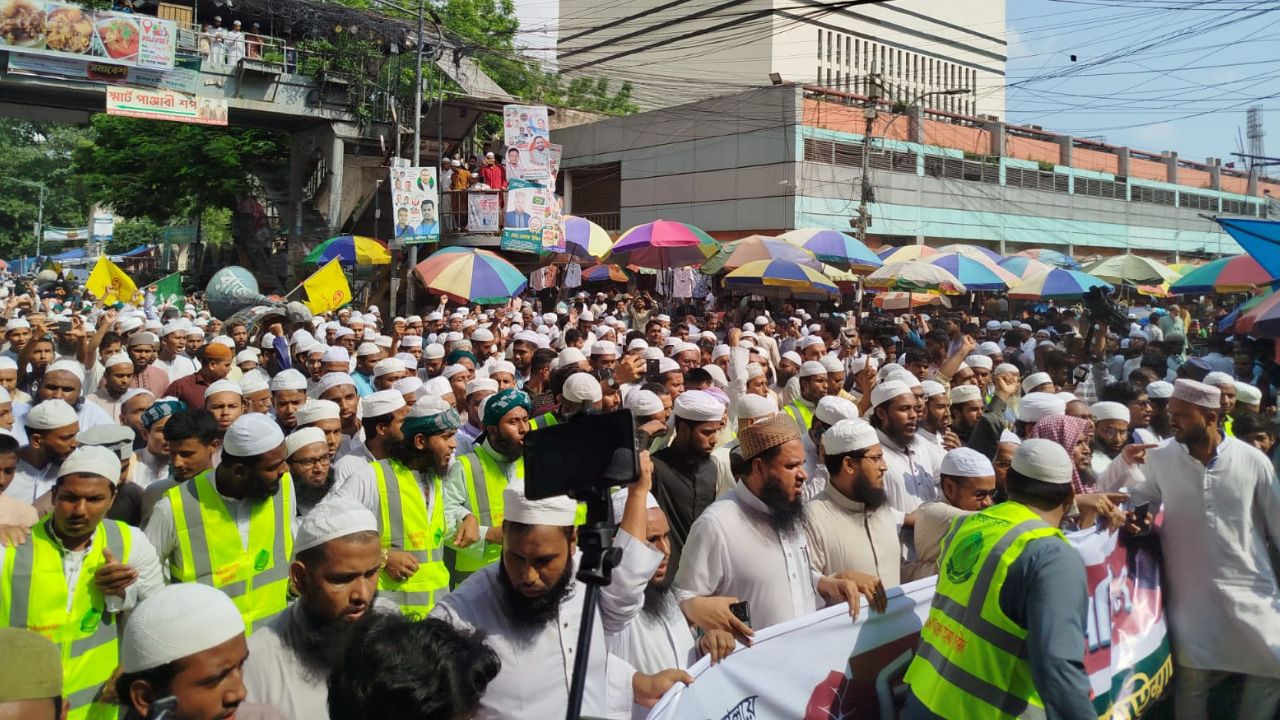A group of religious scholars and clerics staged a protest in the capital against the government’s decision to appoint music teachers in government primary schools, urging instead for the recruitment of religious teachers.
The demonstration, organised under the banner of the “Jatiya Ulama Mashayekh Aima Parishad” took place after Jumma prayers at the Baitul Mukarram National Mosque on Friday. The protesters marched from the mosque, voicing their demands and concerns.
Speakers at the pre-march gathering argued that to raise children according to Islamic principles, the appointment of religious teachers is necessary – not music instructors. They claimed that music does not foster morality but rather undermines it. They insisted that education grounded in the Quran and Hadith would nurture true and virtuous individuals.
The clerics expressed concern over ongoing initiatives to appoint music teachers in various educational institutions across the country, saying this contradicts the moral and religious values of society. They urged the government to prioritise hiring religious teachers to ensure students receive proper ethical education.
They further alleged that the move to appoint music teachers reflect an increasing influence of foreign cultures in the education system, neglecting Islamic teachings.
The protesters demanded that qualified Islamic scholars be appointed in all institutions to help the younger generation acquire religious knowledge and strong moral values.
Mufti Syed Mohammad Faizul Karim, the Senior Nayeb-e-Ameer of Islami Andolan Bangladesh (IAB) and widely known as Shaykh-e-Charmonai, addressed the rally, saying the current time demands religious teachers rather than music instructors.
“Religious education is obligatory (Farz) for every Muslim. In our country, where 92% of the population is Muslim, this mandatory education has not been adequately ensured,” he said, criticising the government for failing to implement this responsibility.
He warned the government to immediately halt the appointment of music teachers and stressed that no nation can progress morally without Islamic education. “If the government delays or ignores our demand for hiring religious teachers, we will mobilise scholars, clerics, and the general Muslim population across the country for a movement. If necessary, we will compel the government,” he added.

Following the protest rally, a procession marched from the Baitul Mukarram mosque, proceeding along multiple streets. Participants chanted slogans demanding the cancellation of music teacher appointments, confirmation of religious teacher recruitment, and the expansion of Islamic education within the school system.
The event was attended by senior leaders including Mufti Rezaul Karim Abrar, central general secretary of the National Ulema-Mashayekh Imams Council; Mufti Saeed Ahmad, Administrative Director of Kalroob; along with many other leaders and activists.


